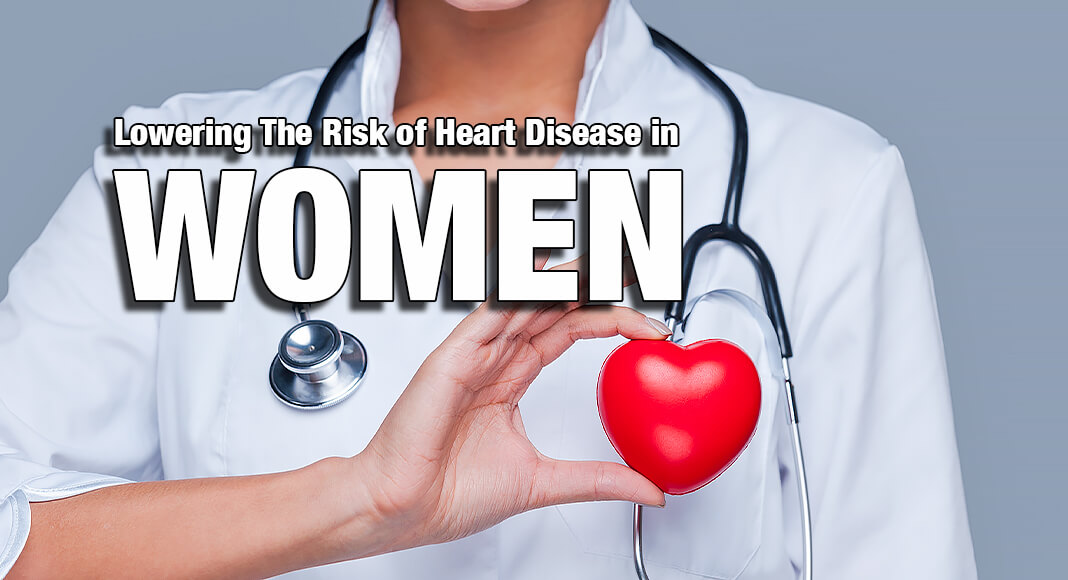
Mega Doctor News
The term heart disease refers to several types of heart conditions, including coronary artery disease and heart attack.
Get Informed: Facts on Women and Heart Disease
Heart disease is the leading cause of death for women in the United States, killing 310,661 women in 2021—or about 1 in every 5 female deaths.1 Despite this,only about half (56%) of women recognize that heart disease is their number 1 killer.2
- About 1 in 17 women age 20 years and older (5.8%) have coronary artery disease,3 the most common type of heart disease in the United States.
Types of Heart Disease
Sometimes heart disease may be “silent” and not diagnosed until you have other symptoms or emergencies, including:
- Heart attack: Chest pain or discomfort, upper back or neck pain, indigestion, heartburn, nausea or vomiting, extreme fatigue, upper body discomfort, dizziness, and shortness of breath
- Arrhythmia: Fluttering feelings in the chest (palpitations)
- Heart failure: Shortness of breath, fatigue, or swelling of the feet, ankles, legs, abdomen, or neck veins
What You Can Do for Heart Health
To lower your chances of getting heart disease, it’s important to:
- Manage your stress levels. Find healthy ways to lower your stress levels. Learn more about coping with stress.
- Know your blood pressure. High blood pressure has no symptoms, so it’s important to have your blood pressure checked regularly. Learn more about high blood pressure, including high blood pressure during pregnancy.
- Check for diabetes. Talk to your healthcare provider about whether you should be tested for diabetes. Having uncontrolled diabetes raises your risk of heart disease. Learn more about diabetes, including gestational diabetes.
- Know your cholesterol status. Knowing your cholesterol status can help you stay in control of your health. Learn about getting your cholesterol checked and why it is important.
- Quit smoking. If you don’t smoke, don’t start. If you do smoke, learn about how to quit
- Be physically active. Try to get at least 2 hours and 30 minutes of physical activity each week. Not getting enough physical activity can lead to heart disease. Learn more about physical activity.
- Choose healthy foods and drinks. Be sure to eat plenty of fresh fruits and vegetables and eat fewer processed foods. Learn more about healthy eating.
- Limit how much alcohol you drink. Women of legal drinking age should either avoid alcohol or drink one or less alcoholic drink per day. Learn more about alcohol use.
A collaboration by CDC’s Division for Heart Disease and Stroke Prevention and Office of Women’s Health.
Citations:
- National Center for Health Statistics. Multiple Cause of Death 2018–2021 on CDC WONDER Database. Accessed February 2, 2023.
- Mosca L, Hammond G, Mochari-Greenberger H, Towfighi A, Albert MA, American Heart Association Cardiovascular Disease and Stroke in Women and Special Populations Committee of the Council on Clinical Cardiology, Council on Epidemiology and Prevention, Council on Cardiovascular Nursing, Council on High Blood Pressure Research, and Council on Nutrition, Physical Activity and Metabolism. Fifteen-year trends in awareness of heart disease in women: Results of a 2012 American Heart Association national survey. Circulation. 2013;127(11):1254–63, e1–293
- Tsao, C. W., Aday, A. W., Almarzooq, Z. I., Anderson, C. A. M., Arora… & American Heart Association Council on Epidemiology and Prevention Statistics Committee and Stroke Statistics Subcommittee (2023). Heart Disease and Stroke Statistics-2023 Update: A Report From the American Heart Association. Circulation, 147(8), e93–e621. https://doi.org/10.1161/CIR.0000000000001123
Information Source: CDC










